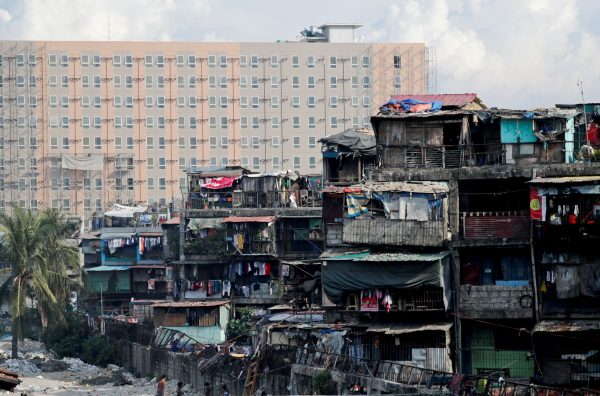This is particularly so in Asia, where cities have been an important driver of economic growth and have proven resilient even during the pandemic. Real estate markets have been much stronger in Asian cities such as Singapore, Seoul and Beijing compared to major North American and European cities. Before COVID-19, some 130,000 new inhabitants moved to Asian cities every day amid breakneck urbanisation. Urbanisation has put pressure on these cities that has led to housing unaffordability and both higher-density and smaller houses.
Housing is dramatically unaffordable in many parts of the world, both in Asia and elsewhere. To measure the extent of the problem in developing Asia, we gathered housing price data for 211 cities in 27 developing countries in the region from public and private sources. Combining housing price data with household income data allowed us to calculate a city-level price-to-income ratio, the most common measure for housing affordability. We demonstrated an average ratio above 15. This indicates that housing is severely unaffordable for the majority of urban dwellers across developing Asian regions. It was also evident that housing is not only unaffordable in cities with large populations, but also in smaller cities.
The consequences of the housing affordability crisis are severe. Urban dwellers, especially recent internal migrants will often resort to alternative housing that is informal and inadequate. Many households are also forced to reduce spending on non-housing consumption such as health and education, harming well-being and productivity.
Faster housing price appreciation in city centres also makes labour markets less flexible as people become reluctant to move and thus spend longer hours commuting. Capital misallocation is another potential issue, as banks favour firms with large real estate portfolios instead of those with the best business models and companies prefer to invest in real estate instead of productivity-driven sectors. Serious housing unaffordability in big cities also slows urbanisation and, in turn, reduces agglomeration-induced productivity growth and overall welfare.
There are several possible ways to address the housing affordability crisis in Asia.
Housing is unaffordable because the rapid increase in demand meets sluggish supply. Less restrictive land use regulations and more efficient planning systems would increase supply elasticity in popular cities in Asia. Creative solutions to ease supply constraints are warranted in land-scarce urban centres. For example, if companies decide to reduce office space in central business districts after the pandemic, this may open opportunities to convert office space into residential living space.
During the pandemic, many households have been evicted or foreclosed upon. Other marginalised households have lost jobs or seen incomes fall, and friends and family have been forced to move in together. Expanding affordable housing therefore becomes increasingly important to accommodate people’s needs.
In addition to these supply-side measures, attention should be paid to urban planning issues. Upgrading digital infrastructure and physical connectivity among cities in Asia would not only ease mass congestion problems, but also help improve housing affordability. In the post-COVID-19 economy, access to high-speed internet will become increasingly crucial for urban and suburban neighbourhoods if pandemic remote work practices become the norm. If most firms maintain their office space in central business districts, however, access to affordable and efficient public transportation will remain an important means to alleviate the need to live in urban centres and ease concentrated housing demand.
More comprehensive data are also needed to better understand and tackle housing affordability issues. Housing price data at the city level is very scarce, especially in developing countries. It has become highly important to understand the dynamic interrelationships between the pandemic and housing affordability across cities. Accelerated digitisation might help. Several governments in the region, including Malaysia and the Philippines, have introduced digitalisation measures to systematically collect more information on housing markets, but more widespread effort is needed.
COVID-19 may profoundly reshape housing affordability issues in Asian cities. For example, there is increasing public recognition of the negative externalities of inadequate housing as informal settlements have been vulnerable to COVID-19 in cities like Mumbai. Housing inequality is also likely to widen further as some households have been more vulnerable to income instability than others during the pandemic. Policymakers need to prepare for these issues, while at the same time seizing unique opportunities to address them. The future dynamism of Asia will depend on whether its cities succeed as hubs for productivity enhancement and whether people can afford to live in them.
Matthias Helble is a Senior Economist in the Economic Research Department at the Asian Development Bank.
Kwan Ok Lee is Associate Professor of Urban Planning and Dean’s Chair in the Department of Real Estate at the National University of Singapore.


In the USA, you have the problems of housing due to American hedge fund managers and Chinese investors buying up the properties, displacing the people living in the houses and apartments and then selling them to people who can afford to pay the jack up prices.